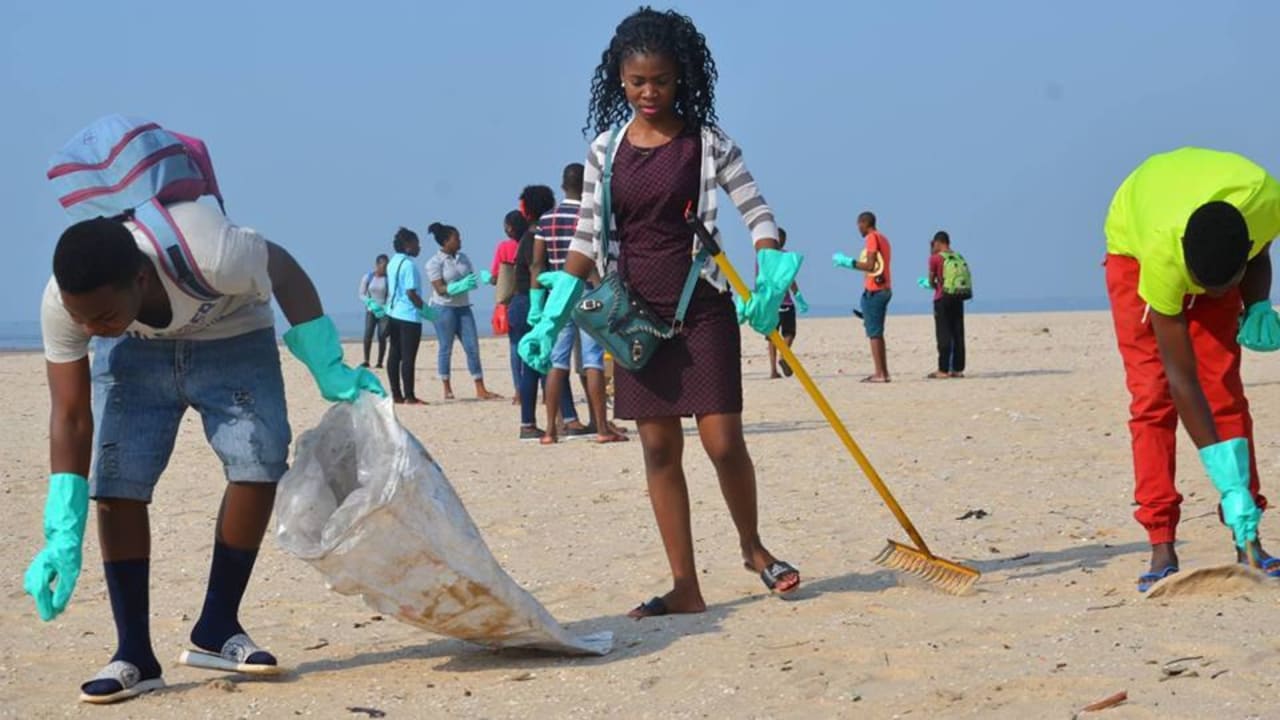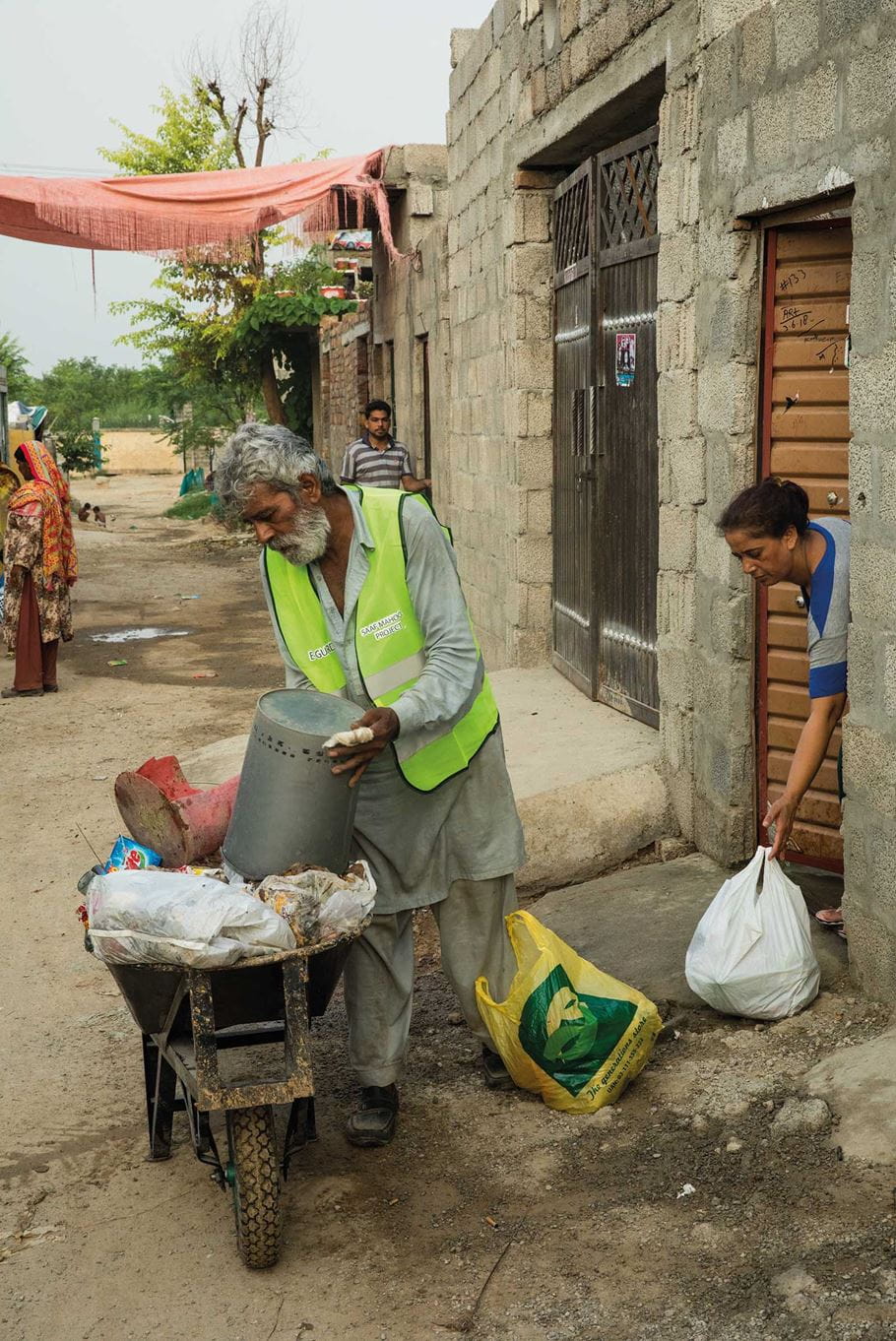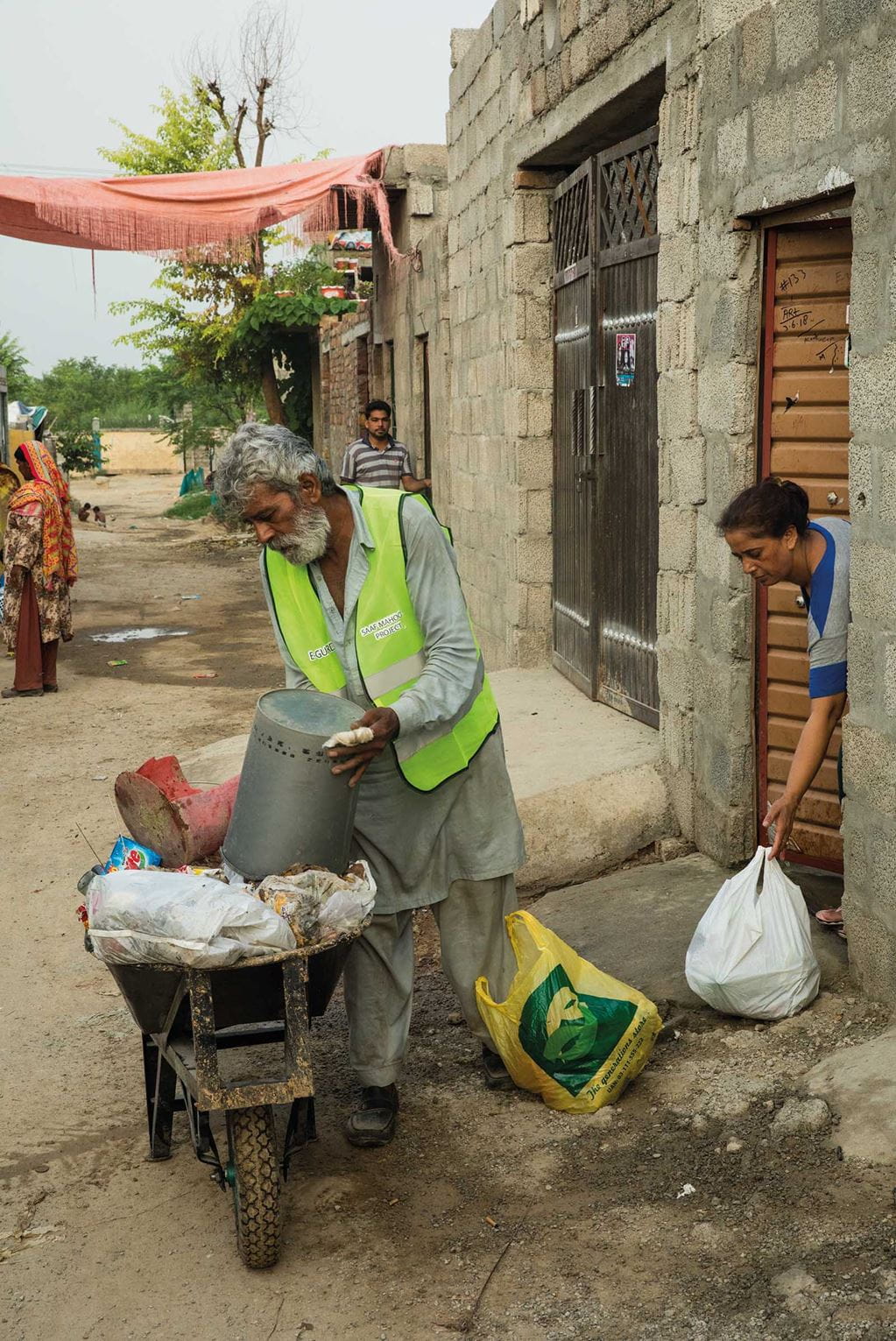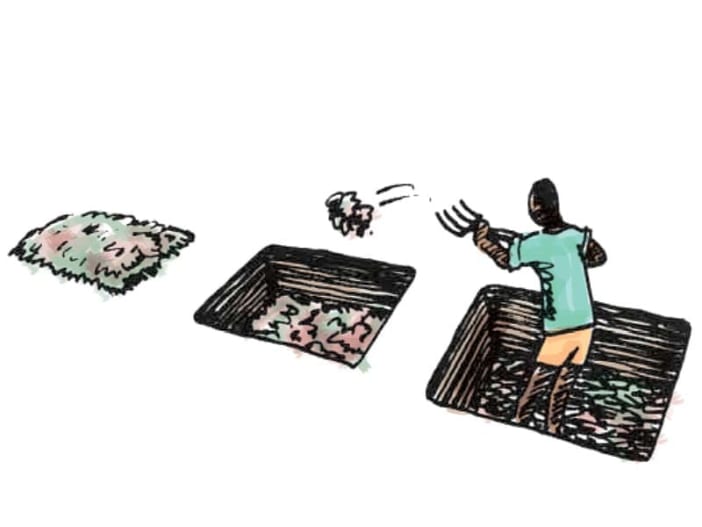If your community does not have an official waste collection service, perhaps you could consider starting one!
Community waste collection usually involves householders and businesses putting waste out for collection, and paid workers collecting it and taking it to a community composting, recycling or disposal site. There might be door-to-door collections or communal containers placed near the road, marketplace or other public area. You will need a cart or motor vehicle to collect the waste in.
There must be strong cooperation from householders and businesses. You will need to research how much they are willing to pay for waste collection, and organise payment for the workers.
Gain permission
Before you start, find out who is responsible for waste management in your local government and arrange a meeting. It is wise to have an agreement in place before you start work, preferably in writing. This is because waste materials might be the official property of the government and you may need permission to collect them. You may also need permits and an environmental impact assessment. Check with the local environmental protection or enforcement agencies.
Analyse the waste
Before setting up your collection service, it is a good idea to collect a sample of the community’s waste and analyse what it is made up of. You could take 50kg or 100kg and sort it into different materials, eg organic waste, paper, metals, plastics, glass and ‘other’. Once you know what is in your community’s waste, you can find a solution for each material. For example, organic waste can be made into compost.
Encourage separation
Separated waste is much easier to work with. Ask people to separate their waste into different categories, such as organic, recyclable (eg plastic, glass, metal and paper) and non-recyclable (eg sanitary napkins, oily rags and some textiles).
Collect the waste
Consider how often you will need to collect the waste. For example, organic waste needs to be collected at least once per week (more frequently in hot, humid climates). Containers for collecting waste should be easily accessible to the collection team. If waste containers are transported to the disposal site, provide replacements or return them quickly afterwards. Plan a short, simple route that ends as near as possible to the disposal site.
Safety first
- Use suitable containers that do not leak, with lids and handles.
- Lift heavy items carefully and watch out for sharp objects.
- Waste collectors should wear strong, protective clothing: gloves; covered feet, arms and legs; and highly visible colours to avoid traffic injuries.
- Always wash thoroughly after working with waste.
Sort and process
Once you have collected the waste, it can be sorted and processed. Organic waste can be made into compost or biogas, and recyclables can be sold on to buyers. Visit local scrap yards and industrial areas to investigate who buys these materials. You can also use the internet to research recycling businesses. Existing buyers are often interested in metals, paper and cardboard, and certain types of plastic.
The amount people will pay for your waste material depends on:
- how much you have
- how clean it is
- whether you can bring it to them or they have to collect it from you
- how you package it – if you bale it, or prepare it in the way the recyclers want, they will usually pay more.
After you have recycled everything possible, there will nearly always be some waste left. This needs to be buried safely, preferably in a properly managed landfill. (If there is no sanitary landfill nearby, see WasteAid’s toolkit Making waste work for information on constructing a simple waste disposal site.)
Adapted from WasteAid’s toolkit Making waste work.











